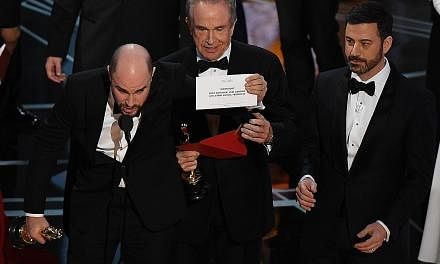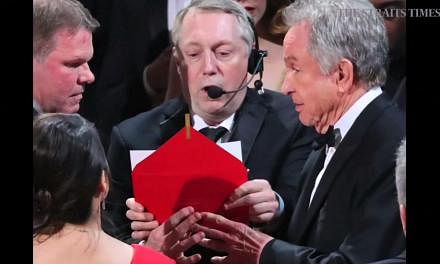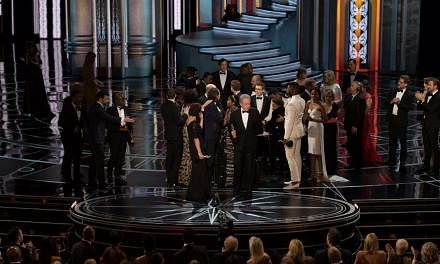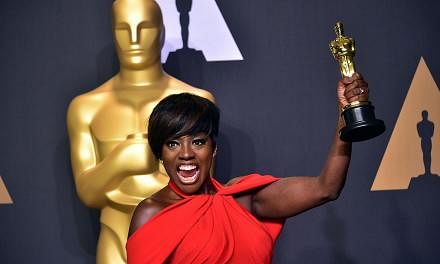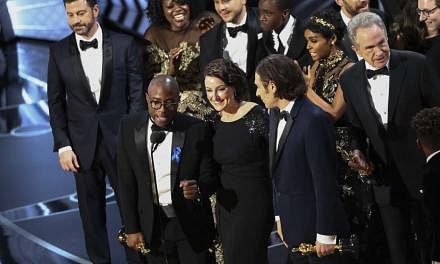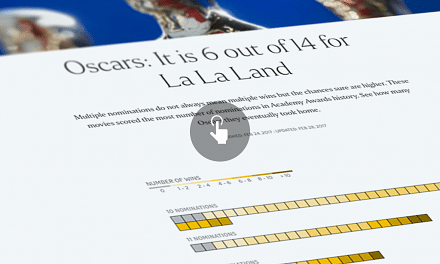TAIPEI - The Oscars, Hollywood's biggest night, is today (27 Feb). While the academy has stepped up its game on diversity this year, it still seems to view it as purely a black-and-white matter.
Dev Patel, a British actor of Indian heritage, is not only the sole Asian actor nominated this year, but also the sole non-black acting nominee of colour.
The lack of Asian and Asian-American nominees has received some media attention over the years, but it has not created nearly as much uproar as when the academy has snubbed African-American actors.
This piece is by no means trying to pit one racial minority group against another.
Rather, we want to point out that Asian Americans, like African Americans, share a common struggle, which goes far beyond the lack of award nominations.
The more important issue at hand is the dearth of adequate and accurate representation of minorities in Hollywood films and TV shows.
For decades, producers typecast Asians in the role of the academically gifted best friend, the manga-loving gamer or the funny martial arts fighter. The Asian character was deployed usually as foil to a white protagonist, there to emphasise the leading character's struggles and growth.
Then, characters like Cristina Yang on "Grey's Anatomy" and Mindy Kaling on "The Mindy Project" came along and took center stage in major network TV shows.
Most groundbreaking was when "Fresh Off the Boat," a sitcom starring an all Asian-American cast, debuted on ABC and was a network success. While these lovable characters have allowed more Asian Americans to occupy the screen, they have not always allowed for a more comprehensive and precise representation of Asian culture or the Asian-American experience.
Eddie Huang, whose autobiography was adapted to make the show, has openly criticised what he calls the "neutered" and "exoticised" depictions of his father and mother's Asian-American immigrant experience on the show.
Eleven episodes into the first season, Huang publicised his frustration with ABC's approach to the show and called it an "ambiguous, cornstarch story about Asian-Americans" that perpetuates "an artificial representation of Asian-American lives."
Huang ultimately stopped narrating for the show and claimed that he did not watch it because he did believe it accurately represented his story.
This romanticisation of Asia is not unique to "Fresh Off the Boat"; in fact, it is not even unique to Hollywood.
The mythologised idea of Asia dates back as early as the 1300s to Chaucer's depiction of Asia in "Monk's Tale." And to this day, movies such as "47 Ronin" and "The Great Wall" perpetuate inaccurate ideas of Asian culture, whether they intend to or not.
While Hollywood presents our fantasies, it is time for filmmakers in places like Taiwan, Japan and South Korea to present our realities. Movies set in ancient Asia featuring spirits and monsters may be fun to watch, but movies about the 228 Incident and the White Terror period, along with other significant historical events, could produce meaningful and potentially high-grossing films.
Two Taiwanese films that have performed well in recent years are "Our Times" and "You're the Apple of My Eye". Both movies were period films, set before the 2000s, about high schoolers in Taiwan.
The accuracy of the films and their characters made them successes with both local audiences and Chinese-speaking audiences abroad.
In an industry where any Asian representation at all, much less accurate representation, is already sparse, it may be time for our own industries here at home to make movies that feature us and the stories and culture dear to us. This is the only sure way of correcting wrong depictions of minorities.
The China Post is a member of The Straits Times media partner Asia News Network, an alliance of 22 news entities.


